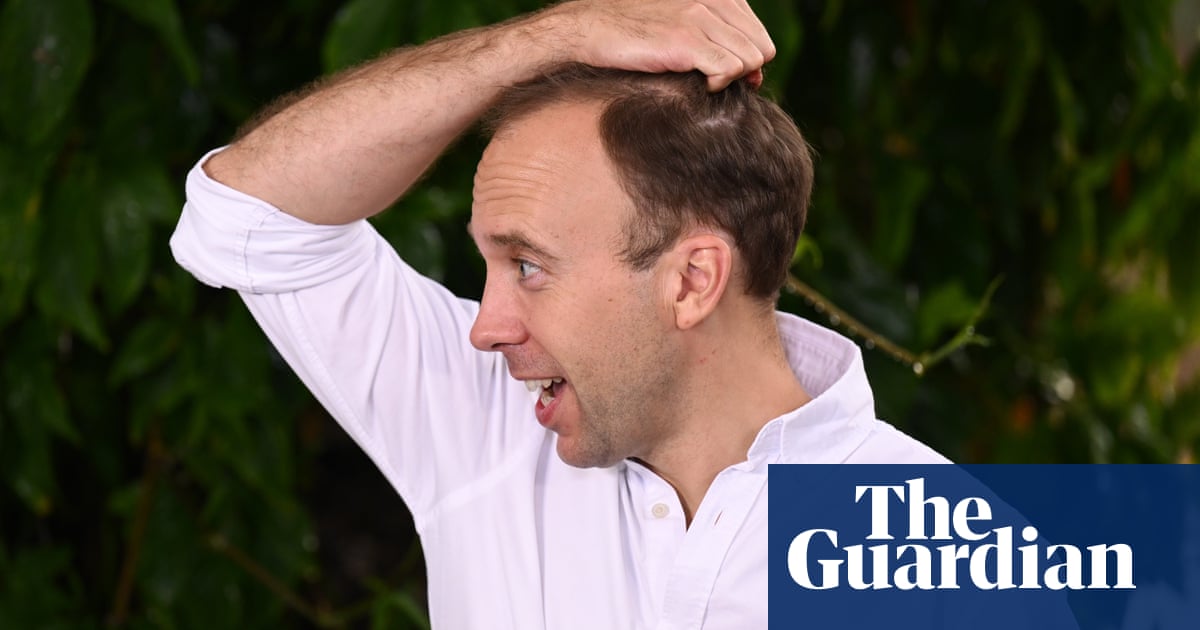
With all the serious issues surrounding coronavirus, it feels surreal and distasteful to be encouraged to focus our ire on the stereotype of, so it goes, greedy, selfish, over-paid footballers.
Matt Hancock, the health secretary, said: “Given the sacrifices that many people are making, including some of my colleagues in the NHS who have made the ultimate sacrifice... I think the first thing that Premier League footballers can do is make a contribution, take a pay cut and play their part.” Shame on you, Mr Hancock: coronavirus should not be used as an excuse for a crass, inappropriate stand-off between footballers and tragically dead NHS workers.
That’s not to say that top-flight football has been above criticism during the pandemic. Clubs such as Tottenham Hotspur and Newcastle United have been rightly censured for taking advantage of the government’s furloughing scheme, allowing taxpayers to pick up the bill for cleaners, security, shop workers and catering staff, leading to accusations of a “moral vacuum”.
The Premier League has now asked players, via the Professional Footballers’ Association, to take a 30% drop in pay, in terms of cuts and wage referrals, while the 20 top clubs will donate £125m to the English Football League and National League and £20m to support the NHS, communities and vulnerable groups.
I sincerely hope that even more good is done and more selflessness displayed. However, it was still unfair to frame this as footballers needing to be morally shamed into action because players don’t control how wages are paid. Such framing pitted “ordinary” people against not just football – in terms of big business – but individual players.
And, you think: why are footballers – young, self-made sportsmen - in particular getting stick and not, say, far wealthier global businessman, several of whom have held their hands out for government assistance?
To me, this reeks of deep-rooted class prejudice. Overwhelmingly, footballers tend to come from poorer backgrounds, often extremely poor in the case of overseas players. This means that, as much as the players are idolised, they also find themselves routinely attacked for being greedy, arrogant and “jumped up”.
Of course Premier League players are overpaid, but people forget that, in days gone by, clubs took much of the money and footballers were lucky to end up with a pub and a drink problem when their careers were over. But an archaic resentment towards players persists and while, generally, it’s lighthearted (“He’s paid how much and he misses a penalty?”), at other times, like now, it has a real danger of turning rancid.
This is what Hancock seemed to be doing with his comment – taking an easy shot at “rich”, “spoilt” footballers, perhaps to deflect attention from the government’s own failings. What an insult to those brave NHS workers who made the ultimate sacrifice.
Modern romance was ruined long before coronavirus
There seems to be much talk about the struggle to find love in the age of the coronavirus: people are unable to meet up, sex has been taken off the agenda, Zoom and Houseparty apps can’t fill the gap – it seems that all is loveless misery.
First of all, younger people, if you think a few weeks counts as a “sex drought”, I salute your optimism. More seriously, as tricky and awful as the situation is, don’t many people find online dating difficult and unfulfilling at the best of times – if somebody wants a relationship and not just a hook-up?
Sexual emancipation is a wonderful thing, but both parties must agree. Since the online dating boom, too often it has seemed that women in particular have been dealing with dating on uber-sexualised male terms – where sex is the main objective, and relationships have become rare and disposable.
For too many women, this has turned out to be the romance model that never starts giving. Swiping left or right. Netflix and chilling. Ghosting... All this is about no-strings sex and keeping options firmly open. Put bluntly, it’s about facilitating commitment phobia. For some, this works well and good luck to them. For others, it leads to misery and the tedium of dealing with weaponised time-wasters.
Has online dating played fair with people who ultimately want relationships? Obviously, there are safety issues in meeting strangers. Away from that, while casual sex has its place, I sympathise with anyone who dislikes the modern romantic-sexual landscape, but gets labelled prudish if they complain. So, sure, modern romance is tricky in the time of coronavirus, but some might argue that online love is also a nightmare.
So Harry can’t pop over to granny’s. So what?
Harry and Meghan? It’s almost heart-warming to see that – even now! – people have the energy to tear into Prince Harry and Meghan.
The couple have moved to California, which apparently is an act of great evil. President Trump said he wouldn’t pay for their security, which came as a shock to them, as they’d never asked him to. Back in Blighty, the news inspired two distinct factions of Sussex hate. Some feel that Harry has stopped caring about his royal family. Others say that he is being kept away by his scheming wife, who bewitched him into marrying her by singing in Ariel’s voice… Oops, sorry, I’m getting confused with the plot of The Little Mermaid. Though I suppose, for some, Meghan has become the ultimate Disney villain.
Seriously, who cares? This is a wealthy couple who (hopefully) will have little trouble keeping themselves and their child safe and well. If they can’t visit their extended families at the moment, so what – nobody can. Above all, get a grip. Just as it feels silly to obsess about celebrities right now – either to worship or bash them – the same applies to royals. The Sussexes’ concerns, like those of celebrities, could end up relegated to the bottom of the pile. But that should be the place for the vitriol too.
• Barbara Ellen is an Observer columnist












